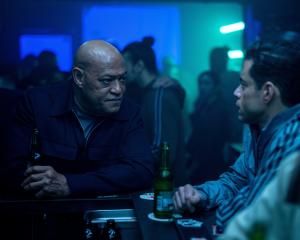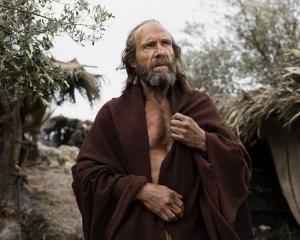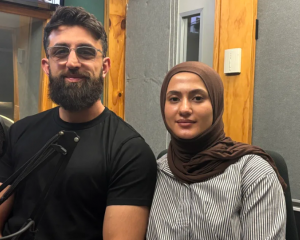A new documentary shows it is politics, as much as coal, that poses the biggest threat to the world's climate. Tom McKinlay reports.
The warmest June on record, a killer storm in Northland and then this week's weather: the most disinterested of observers are likely to be turning their attention to the beating drum of climate change.
And yet, with an election looming there's relatively little talk of addressing the issue.
Indeed, the absence of urgency from Wellington recently prompted Dunedin city councillor Jinty MacTavish to fire a few barbs at the Beehive as she and her colleagues considered the multimillion-dollar price tag of saving South Dunedin from rising tides.
What might surprise many, is that New Zealand very nearly took the path of quietly and soberly addressing the issue 25 years ago when Wellington first became aware of the threat.
It is the surprising picture recalled in New Zealand documentary-maker Alister Barry's latest film, Hot Air, which screens at the International Film Festival in Dunedin this week.
Early in the film we see the fourth Labour Government's Geoffrey Palmer talking confidently about the prospects of heading off global warming before Simon Upton takes up the cudgels in Jim Bolger's activist administration, framing a carbon tax response that as environment minister he clearly had every expectation of seeing passed into law.
But Palmer witnessed no quick fix and for Upton there was no law, no carbon tax.
And a couple of decades on, the country's carbon emissions climb largely unconstrained.
Barry says he does expect people to be somewhat taken aback by the story he and co-director Abi King-Jones tell.
But people need to remember the context in which climate change was first brought to the attention of policy makers.
The threat of an expanding hole in the ozone layer had recently been headed off by an international agreement to end the use of CFCs.
''When climate change came along a couple of years later people like Geoffrey Palmer thought, 'well this is going to be reasonably straightforward, we have the evidence here, now all we need is to have a few conferences and work out what to do and we will be able to deal with that problem too','' Barry says.
''But of course when you look at why there was a difference between what happened about CFCs and the hole in the ozone layer and climate change, well you come back to the politics of it. Politics is completely central to the whole thing.''
Politics is central to what Barry does.
His earlier documentaries, such as Someone Else's Country, In a Land of Plenty, A Civilised Society and The Hollow Men, set out to inform the public about the way the society in which they live works, about the politics of it all.
''If we are to take democracy seriously then we have to be informed, we have to inform ourselves,'' he says of his motivation to keep making documentaries.
New Zealand's experience of trying to address climate change is an important case study in that, he says.
Hot Air has a succession of environment ministers telling the story of their efforts to turn the science into a policy response, among them former Dunedin North MP Pete Hodgson, who comments that he found it the most challenging task he faced.
Meanwhile, in the opposite corner, the likes of the Business Roundtable's Roger Kerr muddy the water with the help of ''hire-a-sceptic'' before the issue finds its obfuscating nadir in the ''fart tax'' fiasco.
Barry says he believes New Zealand has gone backwards on the issue in the past 20 years.
''It ends up back with that central question of how do we get political movement?''
He offers an optimistic take on that, suggesting one of the things his documentary offers is an education for anyone interested in how to engage with the political process, the importance of identifying the players in any given issue.
In a small democracy such as New Zealand you can still do so, and probably get access to them, he says.
Still, he's none the wiser about what will finally trigger some action on the issue at the centre of his film.
''Like so many other people I am concerned about climate change and what went wrong and why so little has been done,'' he says.
''Is there a tipping point, will there be a moment, what will happen?''
See it
Hot Air screens at Rialto, Dunedin on Friday, August 8 at 1pm, and on Sunday, August 10 at 1.15pm. Directors Alister Barry and Abi King-Jones will attend the screenings.












